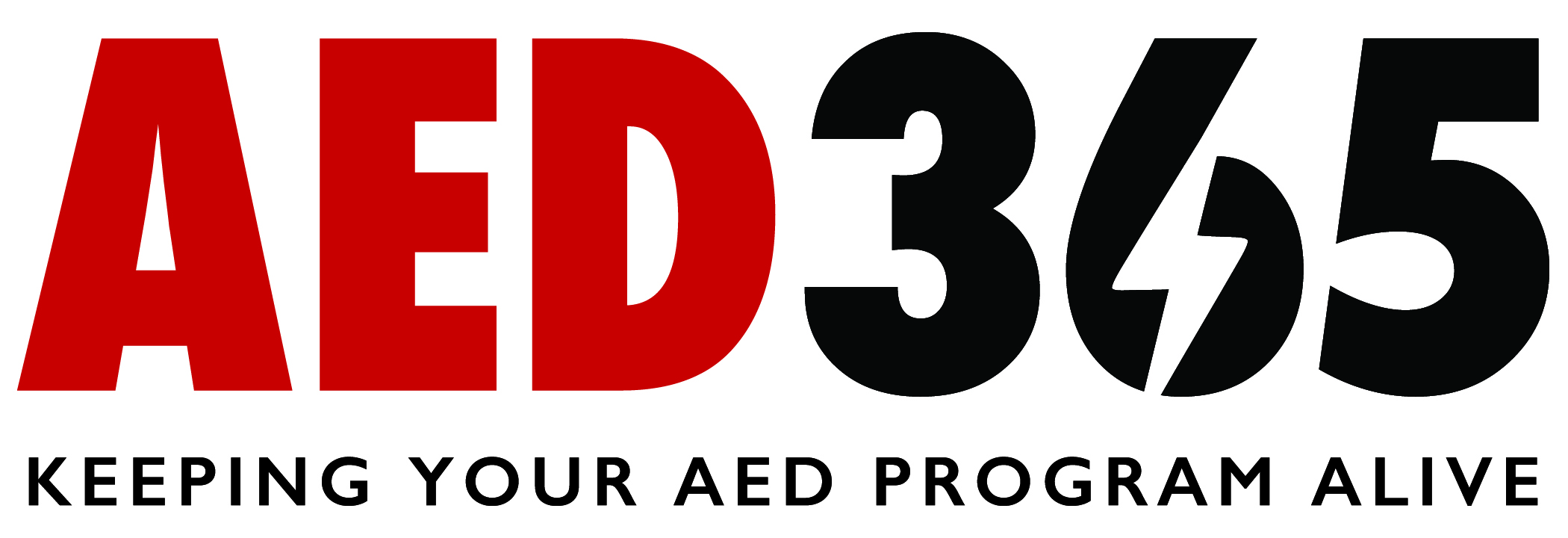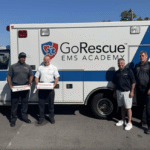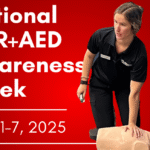
Author: Marcy Burnham, RN
May is Military Appreciation Month—a time to honor the service, sacrifice, and strength of the men and women who serve in the United States Armed Forces. As we salute our military heroes, it’s also a fitting moment to raise awareness about a silent threat that affects even the healthiest individuals: Sudden Cardiac Arrest (SCA).
SCA is a life-threatening condition where the heart suddenly and unexpectedly stops beating. It differs from a heart attack—while a heart attack is a circulation problem, SCA is an electrical malfunction. Without immediate intervention, SCA can lead to death within minutes.
Why It Matters for the Military
Service members are often perceived as the pinnacle of health and endurance. However, SCA does not discriminate. In fact, data shows that even young, fit individuals—like active-duty personnel—are not immune to sudden cardiac events.
- According to the Department of Defense, over 100 cases of SCA occur annually among military personnel.
- Exercise and high-stress environments, common in military training and deployments, can unmask undetected heart conditions.
- Studies have shown that most SCA cases in military settings occur during or shortly after physical exertion, making preparedness critical.
Seconds Matter: The Role of AEDs
When someone experiences SCA, every minute without defibrillation decreases the chance of survival by 7–10%. CPR is crucial, but defibrillation is what restarts the heart. That’s where AEDs (Automated External Defibrillators) come in.
Why AEDs Save Lives:
- Easy to use, even without medical training.
- Provides clear voice prompts to guide the user.
- Can be used within seconds to deliver a life-saving shock.
In military bases, gyms, barracks, and training facilities, having readily accessible AEDs can mean the difference between life and death.
Awareness is the First Line of Defense
The more people who understand what SCA is and how to respond, the more lives can be saved. For military families, veterans, and active-duty members, here’s what you can do:
- Learn CPR and how to use an AED.
- Ask about AED locations on your base, gym, or work site.
- Advocate for regular screenings, especially for recruits and service members engaged in high-intensity training.
- Support programs that increase AED access in military housing, schools, and public areas.
Real Stories, Real Impact
There are countless stories of lives saved because someone nearby knew CPR or had access to an AED. In 2022, an Air Force member collapsed during a routine PT session—thanks to quick action and an on-site AED, he survived and returned to full duty.
Honor Through Action
This Military Appreciation Month, let’s honor our heroes not just with words, but with life-saving awareness and preparedness. Whether you’re a service member, veteran, family member, or civilian supporter, you have a role to play in the chain of survival.
Because heroes deserve every chance to come home safely—even from a silent threat like Sudden Cardiac Arrest.
Office: (205) 417-4711
Email: info@aed365.com






